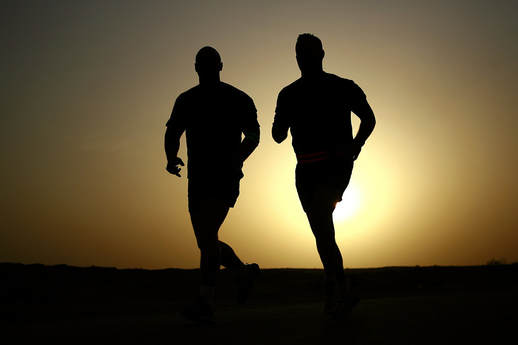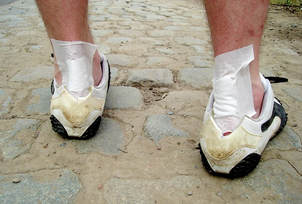|
Traditional Chinese Medicine (TCM) is a complete medical system that has been around for nearly 3,000 years. It combines nutrition, herbs, acupuncture and other modalities to help keep the body functioning properly, while also treating any ailments that might occur. TCM has been used to treat both men and women, regardless of their age, and TCM is frequently becoming the medical choice for those who prefer to use holistic forms of medicine to heal themselves.
There are certain health issues more prevalent in men than women, and many of these conditions can be easily controlled or treated using Traditional Chinese Medicine. Afflictions such as high blood pressure, depression, urinary issues, stress and prostate problems are just a few of the issues that are more frequently seen in men than women. And these issues, along with many others, respond very favorably to acupuncture and TCM. Prostate issues are a prominent concern for men. From enlarged prostates to prostate cancer, this area of the body gets a lot of attention. One of the most common problems facing men is benign prostatic hyperplasia or what is commonly called the enlarged prostate. An enlarged prostate often leads to bladder, kidney and urinary problems, especially urinary retention. This is very easily controlled with acupuncture and herbs because the combination of the two help alleviate the inflammation of the prostate allowing the urine to flow freely. Cardiovascular disease is another big concern for men and it is the leading health threat to men. Acupuncture has been found to be particularly beneficial in lowering blood pressure, which often helps prevent cardiovascular disease. Acupuncture stimulates the release of natural opioids in the body, which then decreases the heart’s activity and lowers the need for excess oxygen. All of this lowers blood pressure. Another area where men often benefit from help is dealing with mental health issues and depression. Men are much less likely to discuss their feelings and emotions, which can frequently lead to depression and even thoughts of suicide. In fact, men are four times more likely to commit suicide than women. Acupuncture helps balance the chemicals released by the brain and the hormones released by the endocrine system. All of these imbalanced chemicals can lead to mental health issues that manifest over time. Insomnia and sleep-related disorders are another major concern for men. Acupuncture has been shown to be beneficial at restoring balance and allowing the body to relax and rejuvenate. In fact, acupuncture often times outperforms many prescription and over-the-counter sleep aids. Men tend to suffer from pain more than women, just because their jobs can be more physical. It is statistically shown that men are less likely to seek out help when they experience pain, as they don’t want to appear weak. This is where something like acupuncture can be a great asset for men. Regular acupuncture treatments as preventive medicine can help keep them in top shape, thus avoiding aches, pains, strains and pulls. Fertility is not something that usually comes to mind when it comes to men’s health issues. However, stats show that 35-40 percent of all fertility issues are male conditions. Studies have shown acupuncture and Chinese herbs are very effective at improving sperm quality and the instructional integrity of the sperm. This is why many acupuncturists who focus on fertility issues treat both the male and the female as a team. Lastly, acupuncture is a great way to combat digestive issues frequently related to added stress and this occurs more in men than it does in women. The most common digestive disorder is heartburn or acid reflux, which is usually caused by stress and poor diet. When stress levels are decreased, then stomach acid can decrease also, thus alleviating heartburn. These are just a few of the issues acupuncture can help with when it comes to men’s health. But it is easy to see why choosing acupuncture to help keep the body in alignment is a great option, especially for men.  The adrenal glands are two tiny glands that sit on top of the kidneys. They are part of the overall endocrine system that produces hormones that regulate the body. The adrenal glands produce three very important hormones, adrenaline, cortisol and aldosterone. Adrenaline, also known as epinephrine, prepares the body to spring into action during stressful or life-threatening situations. Cortisol helps regulate metabolism and assists the body in responding to stress. And aldosterone helps control blood pressure. When the adrenal glands are not functioning properly, many diseases can develop. Adrenal fatigue is becoming increasingly common in the United States, despite the fact that most conventional doctors claim that there is no such thing as adrenal fatigue. However, excessive and chronic stress can indeed deplete the adrenal glands over time. Even though most Western medical doctors deny adrenal fatigue is a real diagnosis, it is impossible to deny stress plays a factor in how our bodies thrive and survive. Chronic stress can have serious health implications. Stress causes the adrenal glands to produce excess cortisol and adrenaline, which puts these glands in a constant state of “fight or flight.” This can lead to symptoms such as poor sleep, weight gain, digestive issues and chronic illnesses. Cortisol normally helps the body convert food into energy, while keeping the mind alert and reducing inflammation. This is why many people who are diagnosed with fibromyalgia are probably also clinically experiencing adrenal fatigue and chronic stress. Traditional Chinese Medicine provides some of the best tools available to battle chronic stress and adrenal fatigue. Acupuncture is one of the tools in the toolbox of the TCM practitioner. Acupuncture uses hair-thin needles to stimulate acupressure points on the body. And studies have shown acupuncture treatments actually turn on or stimulate the relaxation areas of the nervous system, also known as the parasympathetic nervous system. When the parasympathetic nervous system is switched on, it helps to regulate the heart rate, improve digestion and balance sleep cycles. Many people who get regular acupuncture treatments actually fall asleep once the needles have been inserted. Moxibustion is another modality commonly used by TCM practitioners. Moxibustion uses the herb mugwort to boost the functions of the adrenal glands and balance hormones. Crushed mugwort is placed on various acupressure points and then lit on fire. There are barriers between the herb and the body to prevent any actual scarring. Over time, moxibustion can help with many of the symptoms experienced by those suffering from adrenal imbalances. In TCM, the adrenal glands are frequently included or related to the functions of the kidneys. Therefore, many of the points that help balance the adrenal glands are found along the kidney energetic pathways. Thus, by stimulating these acupressure points, the licensed acupuncturist can help regulate the hormones being produced by the adrenal glands. The pericardium energetic pathway also plays a vital role in helping balance the adrenal glands. With all the excess stress placed on humans today, it is quite feasible nearly everybody deals with some sort of hormone imbalance and adrenal gland weakness. But this doesn’t have to be the case. Seeking out a licensed acupuncturist may be the perfect answer to this problem. To find a licensed acupuncturist in your area, check out the NCCAOM’s (National Certification Commission for Acupuncture and Oriental Medicine) website and get on the natural path to healing.  We’ve all heard of and maybe even experienced a sprain or a strain. But do you really know the difference? A sprain is defined as a stretch or tear of a ligament. A strain, on the other hand, is defined as an injury to a muscle or tendon. Sprains can result from a fall, a sudden twist or a blow to the body that forces a joint out of place, while a strain can happen from twisting or pulling a muscle or tendon. There are specific ways of telling the difference between a sprain and a strain based on the symptoms that appear. Symptoms of a sprain include pain, swelling, instability, bruising and loss of functional joint ability. Sometimes there is an audible pop when the injury occurs. There are different levels of sprains too. A Grade I or mild sprain is generally caused by overstretching or the minor tearing of a ligament, but the person will still have joint stability. A Grade II or moderate sprain is more intense, but the person only experiences some loss of joint function. A Grade III or severe sprain occurs when there is a complete tear in the ligament and the person is unable to put any weight on the joint. Strains, on the other hand, have very different symptoms. Most people who experience a strain, will report pain, limited range of motion, muscle spasms and possibly muscle weakness. There may also be cramping, swelling and inflammation. Instinctively, when a person experiences a sprain or a strain, learned first aid skills take over. Things like taking the pressure off the joint, raising the joint and applying ice to alleviate swelling and inflammation are all great places to start. Icing a sprain or strain is only good for the first 48 to 72 hours, as it will help decrease swelling. However, prolonged use of ice may impair movement and also interfere with the healing process because it constricts the tissues and impedes blood flow. But there are other possible solutions to healing a sprain or a strain. And one of these would be to see an acupuncturist or Traditional Chinese Medicine practitioner. Traditional Chinese Medicine practitioners have many tools at their disposal that can assist in increased healing of a strain or sprain. When either of these injuries occur, the muscles surrounding the area tighten up in an effort to protect the injured site. This can then lead to stiffness in that joint. This is the body’s natural defense mechanism that decreases strong blood flow to the area. TCM practitioners use acupuncture and other modalities to help loosen up the muscles and increase blood flow to the area, which brings in tissue-healing oxygen and nutrients. Increasing blood flow is just one way TCM can help. There are also specific acupressure points that reduce swelling, decrease inflammation and alleviate pain. Through the use of regular acupuncture treatments following a sprain or strain injury, the body can heal faster. The more frequently a person comes in for their acupuncture treatments, the quicker the results will occur. |
AuthorsRebecca M H Kitzerow is a Licensed Acupuncturist practicing in La Center, Washington. With over a decade of experience she has won 10 Nattie consumer choice awards from Natural Awakenings Magazine since 2014. Archives
July 2024
Categories
All
|
Photos from Hey Paul Studios, BeGreen_Studio, Pawel Pacholec, 1950sUnlimited, toulupaliaqaz, Joelk75, OnTask, Robert Gourley, cnu_sports, Mitya Ku, wuestenigel (CC BY 2.0), FootMassagez, 401(K) 2013, Mariana Heinz, @EdwardTerry, fishhawk, liverpoolhls, torbakhopper, Boemski, dolomitibl, Driscolltheque, Dave n Laura, Vaping360, MVWorks, Life Mental Health, MVWorks, mikefats, Scot Nelson, jfl1066, wZa HK, ruurmo, Guadalupe Cervilla, Army Medicine, GViciano, torbakhopper, adrigu, Saulo Cruz, Ben Cumming, marniejoyce, kcxd, JasonCorey, kanenas.net, Live to Create Photography, gm.esthermax, Unique Hotels Group, Zenspa1, mysiana, Tobias Lindman, Leader Nancy Pelosi, Kristoffer Trolle, swanksalot, Bill Selak, Parker Knight, stimpsonjake, Gedankensprudler, SuperFantastic, tonynetone, marniejoyce, JeepersMedia, Illusive Photography, 'Ajnagraphy', Iban Torras, scotted400, gtall1, dvanzuijlekom, BPPrice, Skley, torbakhopper, Renato Ganoza, anka.albrecht, QUOI Media, Public Domain Photos, Instant Vantage, Victor Tongdee, Free Grunge Textures - www.freestock.ca, sportEX journals, Nadja Tatar, angela n., marniejoyce, MVWorks, Karolina Kabat, Thomas Fisher Rare Book Library, UofT, ginnerobot, tracilawson, haven't the slightest, My Photo Journeys, Pierre Willemin, Florena_Presse, SuperFantastic, colindunn, zzkt, TraumaAndDissociation, ER24 EMS (Pty) Ltd., shixart1985 (CC BY 2.0), marniejoyce, Tomás Fano, freestock.ca ♡ dare to share beauty, Archives New Zealand, Jaykhuang, airdrie.m, Go-tea 郭天, OnTask, wuestenigel, focusonmore.com, Disney | ABC Television Group, Andrew Gustar, Didriks, ConstructionDealMkting, charlywkarl, barnimages.com, Lel4nd, runwaypilates, michaelstephanfotografie, McLevn, TraumaAndDissociation, eLife - the journal, Lars Plougmann, wuestenigel, shixart1985, boviate, davis.steve32, kevin dooley, @the.photoguy (insta), frederic.gombert, Feathering the Nest, Victor Tondee, shixart1985, wuestenigel, Joe K Gage, kennethkonica

 RSS Feed
RSS Feed
